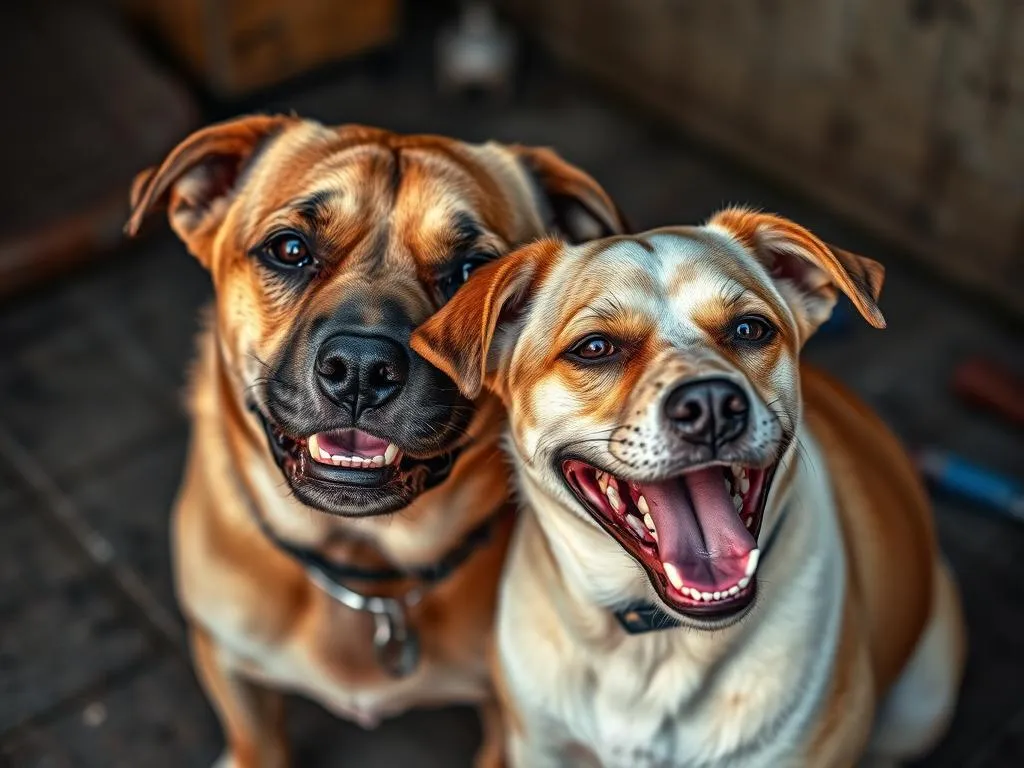
When discussing whether dogs are dirty animals, it’s essential to first clarify what “dirty” means within the context of animals. To many, “dirty” implies an absence of cleanliness, a breeding ground for germs, or a source of unpleasant odors. Society often views dogs as pets that may bring dirt and mess into the home, leading to a perception that they are inherently less clean than other pets. However, this perspective can be misleading.
Understanding dog hygiene requires a closer examination of their behaviors, the factors influencing their cleanliness, and how these furry companions compare to other animals. In this article, we will explore the cleanliness of dogs, dispelling myths and laying out the facts about our canine friends.
Understanding Dog Hygiene
Natural Behaviors of Dogs
Dogs possess several innate grooming habits. Just like cats, they often engage in self-grooming, licking their fur to remove dirt and debris. This natural behavior is a part of their instinctual need for cleanliness.
Another fascinating behavior is rolling in various smells, which might be perceived as dirty. However, this action serves a purpose in the dog’s world. For dogs, rolling in specific scents can be a way to mask their own smell, a behavior that dates back to their wild ancestors who relied on stealth to hunt. This instinctual act is not about being dirty; it’s about survival.
Factors Affecting Dog Cleanliness
The cleanliness of dogs can vary significantly based on breed characteristics. Some breeds, like the Poodle, have hair that requires regular grooming to prevent matting and odor, while others, such as the Beagle, have short coats that are easier to maintain.
Additionally, the lifestyle and environment of a dog significantly impact its cleanliness. Dogs that spend most of their time outdoors may be exposed to more dirt, grass, and mud, leading to a more frequent need for baths. Conversely, an indoor dog may require less maintenance but still needs regular grooming to manage shedding and maintain coat health.
Common Misconceptions About Dogs
Myths About Dog Dirtiness
One prevalent myth is that dogs are inherently dirty animals. This notion often overlooks the fact that dogs, like any other pet, require care and maintenance. With proper grooming and hygiene practices, dogs can be quite clean and healthy companions.
Another misconception is that dogs carry more germs than other pets. While it’s true that dogs can harbor bacteria, research indicates that they are not significantly dirtier than other common pets, like cats or rodents. In fact, studies show that dogs can have a beneficial effect on human health, introducing microorganisms that can strengthen our immune systems.
The Truth About Dog Hygiene
Research has demonstrated that while dogs do carry certain bacteria, many of these are harmless and may even provide health benefits. For instance, exposure to a dog’s microbiome can help bolster a child’s immune system and reduce the risk of allergies and asthma. Thus, the narrative that dogs are dirty animals is not only misleading but fails to recognize the potential health benefits they bring to our lives.
Maintaining a Clean Dog
Regular Grooming Practices
To keep dogs clean, regular grooming practices are essential. The frequency of bathing a dog depends on its breed, coat type, and lifestyle. For instance, long-haired breeds or those with oily coats might require more frequent baths compared to short-haired breeds. As a general guideline, bathing a dog every 4-6 weeks is a good standard, but some dogs may need more or less depending on their specific needs.
Brushing is also critical for maintaining a clean dog. Regular brushing removes loose fur, dirt, and debris, contributing to a healthier coat. It can also help in reducing shedding and preventing matting, particularly for breeds with longer or curly hair.
Professional Grooming Services
In some cases, it may be beneficial to seek professional grooming services. Signs that your dog might need a groomer include matted fur, persistent odors, or an inability to manage shedding at home.
During a grooming session, you can expect a variety of services, such as bathing, brushing, nail trimming, and ear cleaning. Professional groomers are skilled in identifying skin issues, parasites, and other health concerns that may need attention.
Dog Health and Hygiene
Importance of Regular Vet Check-ups
Regular vet check-ups are crucial for maintaining a dog’s hygiene and overall health. Preventive care, such as vaccinations and parasite control, plays an essential role in keeping your dog clean and healthy. Additionally, routine vet visits can catch potential health issues early on, which is vital for your dog’s well-being.
Common health issues related to cleanliness include skin infections, which can occur due to poor grooming or underlying health conditions. Regular vet visits can help identify and treat these issues, ensuring your dog remains clean and healthy.
Diet and Its Impact on Cleanliness
Nutrition significantly impacts a dog’s skin and coat health. A well-balanced diet rich in essential fatty acids can help reduce odor and promote a shiny coat, making it easier to maintain cleanliness. For example, a diet that is high in omega-3 and omega-6 fatty acids can improve skin health and reduce shedding.
Hydration is equally important. Proper water intake helps keep a dog’s skin hydrated, reducing dryness and potential odor. Ensuring your dog has constant access to fresh, clean water is a fundamental aspect of maintaining their health and cleanliness.
Tips for Keeping Your Dog Clean
Home Environment
Creating a clean space for your dog is key to maintaining hygiene. Regularly cleaning your dog’s bedding, toys, and any areas they frequent can significantly reduce odors and allergens in the home.
To manage shedding and odors, consider investing in high-quality vacuum cleaners designed for pet hair and odor neutralizers. Regularly washing pet blankets and toys can also help keep the environment fresh.
Outdoor Care
After outdoor activities, post-walk hygiene is essential. Cleaning your dog’s paws and fur can prevent dirt and debris from being tracked into your home. A damp cloth or pet wipes can be effective for this purpose.
When traveling with your dog, maintaining cleanliness can be more challenging, but it is manageable. Bring along grooming supplies like wipes or portable brushes to freshen up your dog after outdoor adventures.
Conclusion
In summary, the question of whether dogs are dirty animals requires a nuanced understanding of dog hygiene and behaviors. Dogs are not inherently dirty; rather, their cleanliness depends on several factors, including grooming practices, diet, and environmental influences.
Responsible pet ownership entails a commitment to maintaining a clean and healthy environment for your dog. By dispelling myths and focusing on good hygiene practices, we can appreciate the joys of having dogs as clean, healthy companions.
Sharing experiences and tips for keeping dogs clean can further enhance our understanding and foster a community of responsible dog owners.









